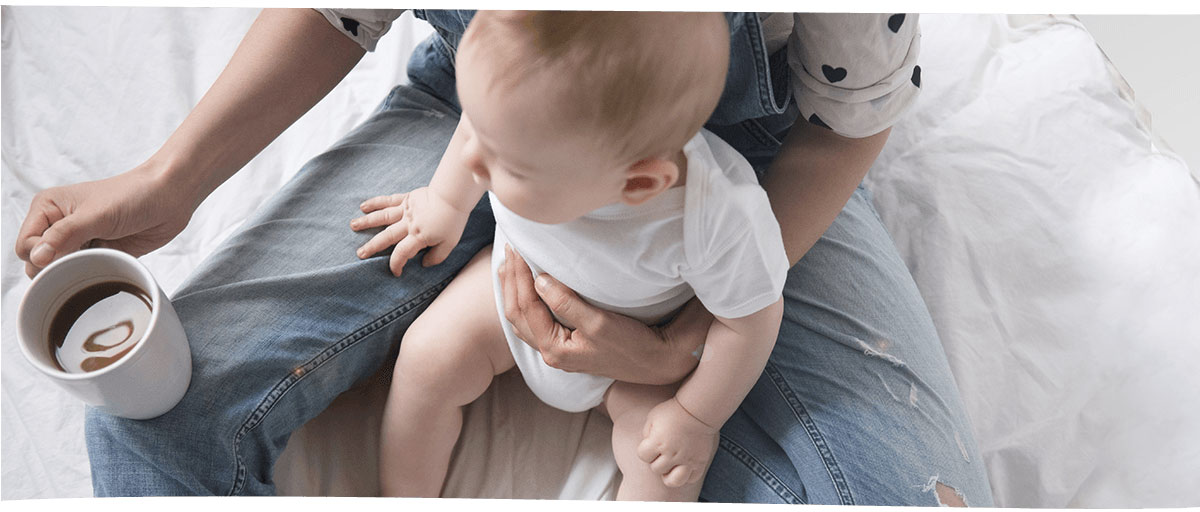There is nothing like a good coffee to wake you up in the morning! That’s because caffeine is a stimulant. Unfortunately, it passes into breast milk and if you consume a lot of it, it can make your baby restless and irritable. Caffeine is found in coffee, tea, energy drinks, cola-type soft drinks, and chocolate.
So, how much caffeine can you have while breastfeeding? You should limit your intake to no more than 300 mg per day. Let’s put that in perspective: 250 mL (1 cup) of brewed coffee contains 135 mg of caffeine while the same amount of tea (average blend) has 43 mg and 1 can of cola can contain up to 46 mg. So, coffee, tea, cola, etc. may be consumed in moderation, up to 2 cups or so per day (see, that’s not so bad). Energy drinks are not recommended while breastfeeding because they contain other substances that might actively harm your baby. Herbal teas can also be used in moderation (2 to 3 cups per day). Decaffeinated drinks such as cereal-based beverages can be good substitutes for caffeinated beverages.





